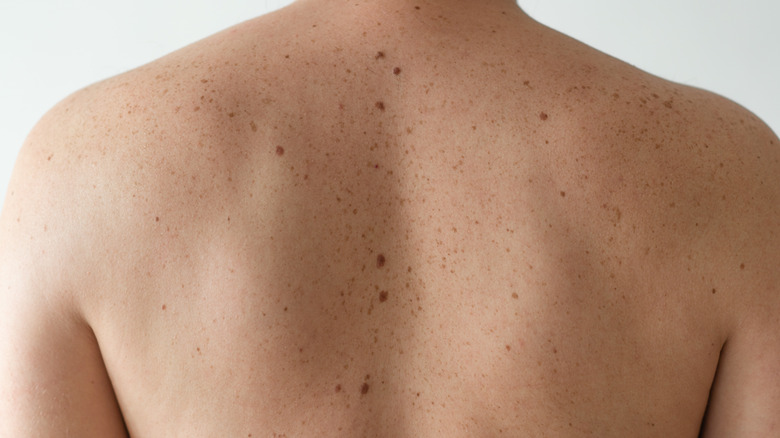Here's What Really Causes New Moles To Form
It's a good idea to have a steadfast skin routine in place to check that your moles haven't grown, changed color, or become uneven around the edges. Prevention is key, as over 9,500 people are diagnosed with skin cancer every day. Additionally, every hour, an American passes away from melanoma — a rare but deadly form of skin cancer (via Shape). Yes, checking your skin for the warning signs of cancer is a good habit to get into. Yet, if you're just focused on looking for irregularities, you may not even notice if the moles you have are new or have been there for years.
According to Medical News Today, most of the moles we have on our skin develop during childhood and throughout puberty. However, it is not uncommon to notice more moles on the surface of your skin now than when you were younger. Though new moles commonly pop up in adulthood, it's important you keep track of these new growths on your skin as they can be dangerous.
Schedule annual skin exams with a dermatologist
In a recent medical review shared via Keck Medicine of USC, it was concluded that 71% of melanoma cases stemmed from new moles as opposed to ones that previously existed.
Medical News Today states that common possible causes of new moles include genetics, exposure to UV rays, having a fair skin tone, hormone fluctuation, and a weakened immune system.
The causes behind a new mole forming are abundant and may be impossible to prevent at times. As common as they are, new moles should be closely monitored. "Generally speaking, I recommend that everyone starts getting an annual body check in early adulthood," says Marc Glashofer, a skin cancer surgeon at the Dermatology Group in West Orange, New Jersey to Shape. Adding, "If you can vote, you should get your skin checked annually by a board-certified dermatologist." Checking your skin for irregularities is an excellent habit to get into. Just add in an annual visit to a skin care professional and give yourself a pat on the back for staying on top of your skin health.


